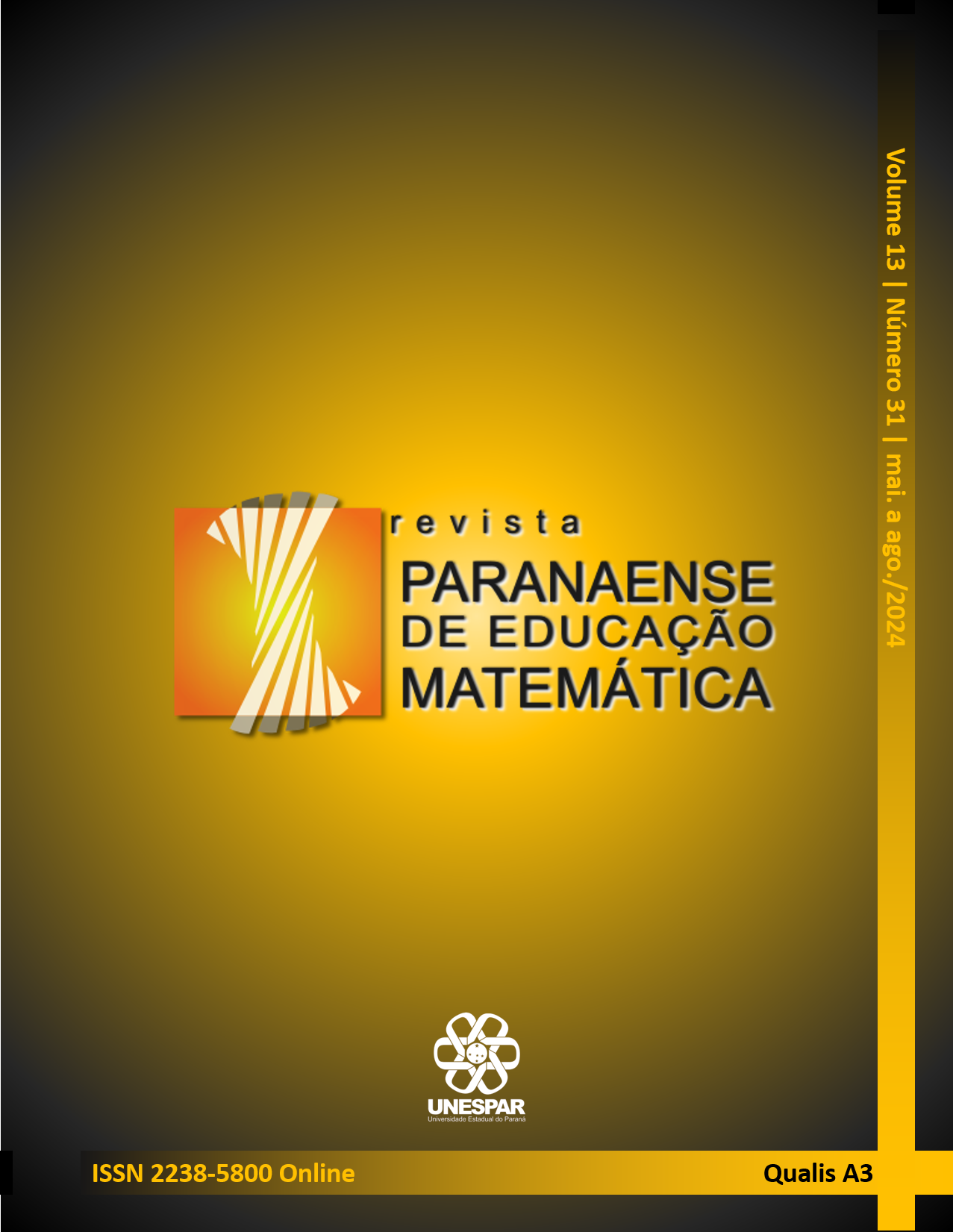Inflection points in process of math institutionalization in society
DOI:
https://doi.org/10.33871/rpem.2024.13.31.8869Abstract
In this article, we point out what we consider to be the four fundamental historical milestones responsible for the current importance of mathematics for society. To identify these points, we carried out bibliographical research of a theoretical nature, which was made possible by a literature review, in which we followed some specific steps, such as selecting the material, reading and analyzing the texts, recording the material found and, finally, a final analysis of the information to prepare the article. The milestones found were the construction of Deductive Geometry, the development of Symbolic Algebra and Analytical Geometry, the structuring of Calculus and the alliance between Symbolic Logic and Technology. In the end, we highlight the paradox that is being consolidated in this historical process, that, even though the presence of mathematical knowledge in institutions, in everyday life and in the production of goods is increasing, the invisibility of this type of knowledge in these areas is also increasing. same spaces, that is, in institutions, in everyday life and in the production chain.
Downloads
References
ATTIE, J. P. Relações de poder no processo de ensino e aprendizagem. 2013. 164f. Tese (Doutorado em Educação) – Universidade de São Paulo. Faculdade de Educação. São Paulo, 2013.
BASTOS, T. R. A Concretização do abstrato: história da institucionalização das ciências matemáticas no Brasil. Belo Horizonte: Argumentum, 2006.
BELL, E. T. Historia de las Matemáticas. México: Fondo de Cultura Económica, 2003.
BOYER, C. B. História da Matemática. São Paulo: Edgar Blucher, 1974.
CARAÇA, B. J. Conceitos Fundamentais da Matemática. Lisboa: Sá da Costa, 1958.
CROSBY, A. W. A Mensuração da realidade: a quantificação da sociedade ocidental. São Paulo: Editora da UNESP, 1997.
D’AMBROSIO, U. Etnomatemática: arte ou técnica de explicar e conhecer. São Paulo: Ática, 1990.
D’AMBROSIO, U. Uma história concisa da matemática no Brasil. Petrópolis: Vozes, 2008.
DANTZIG, T. Número: a linguagem da ciência. Rio de Janeiro: Zahar, 1970.
DIEUDONNÉ, J. A formação da matemática contemporânea. Lisboa: Dom Quixote, 1990.
EUCLIDES. Os Elementos. São Paulo: Editora da UNESP, 2009.
EVES, H. Introdução à História da Matemática. Campinas: Editora da Unicamp, 2005.
GIUSTI, P. História ilustrada do xadrez. São Paulo: Annablume, 1999.
KAYSER, M. A mecânica do desejo no desencadeamento da ação no Leviatã de Thomas Hobbes. 2006. 120f. Dissertação (Mestrado em Filosofia) – Universidade do Vale do Rio do Sinos. Centro de Ciências Humanas. São Leopoldo, 2006.
LOPES, M. C. O. Calendário Atual: História, Algoritmos e Observações. Millenium, 43:107-125. 2012.
MAQUIAVEL, N. A arte da guerra. São Paulo: Martins Fontes, 2006.
MENDONÇA, M. Personagem da semana. Revista Época, 728:23-25. Rio de Janeiro, 30 abr, 2012.
NAGEL, E.; NEWMAN, J. R. Prova de Gödel. São Paulo: Perspectiva, 1973.
PENHA, R. M.; SILVA, M. J. P. Do Sensível ao Inteligível: novos rumos comunicacionais em saúde por meio do estudo da Teoria Quântica. Revista da Escola de Enfermagem da USP, 43(1): 208-214. 2009.
RABELAIS, F. Gangântua e Pantagruel. Belo Horizonte: Itatiaia, 2003.
RONAN, C. A. História ilustrada da ciência vol. III. Rio de Janeiro: Jorge Zahar, 1987.
SHAKESPEARE, W. Otelo, o mouro de Veneza. Rio de Janeiro: Nova Aguilar, 1999.
TEIXEIRA, F. G. Origem da cultura das matemáticas em Portugal. Lisboa: Academia de Ciências de Lisboa, 1934.
VALENTE, W. R. Uma história da matemática escolar no Brasil: (1730 – 1930). 1999. 211f. Tese (Doutorado em Educação). – Universidade de São Paulo. Faculdade de Educação. São Paulo, 1999.
WHITEHEAD, N. A. A ciência e o mundo moderno. São Paulo: Paulus, 2006.
Downloads
Published
How to Cite
Issue
Section
License
Copyright (c) 2024 Revista Paranaense de Educação Matemática

This work is licensed under a Creative Commons Attribution-NonCommercial-NoDerivatives 4.0 International License.










